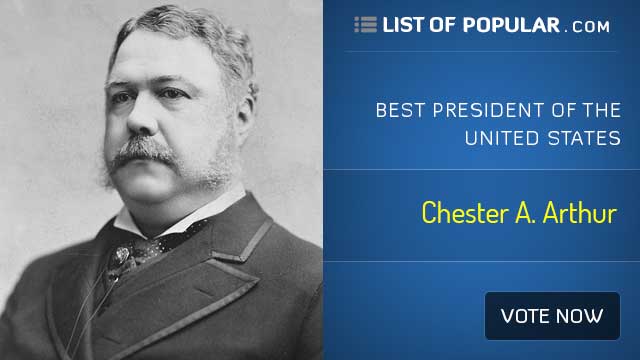The Best US President - Chester A. Arthur
Early Life and Education
Chester Alan Arthur, the 21st President of the United States, was born on October 5, 1829, in Fairfield, Vermont. His early life was marked by tragedy when his father, Reverend William Arthur, passed away when Chester was just 14. Despite the challenges, Arthur went on to attend Union College in Schenectady, New York, where he excelled academically. After graduating, he studied law and eventually became a successful attorney, establishing himself in New York City.
Political Beginnings
Arthur's entry into politics came through his association with the Republican Party. During the Civil War, he served as the Quartermaster General of New York, where he was responsible for ensuring the efficient supply of Union troops. This experience solidified his political connections and paved the way for his future political career. After the war, Arthur continued to rise through the ranks within the Republican Party in New York.
Customs Collector and Reform
In 1871, President Ulysses S. Grant appointed Arthur as the Collector of the Port of New York, a position that oversaw a significant portion of the country's import duties. While in this role, Arthur became associated with the political machine of Senator Roscoe Conkling. Despite accusations of corruption and political patronage, Arthur implemented reforms in the customs service, streamlining operations and increasing efficiency.
The Unexpected Presidency
Arthur's life took a dramatic turn when, in 1881, President James A. Garfield was assassinated, leading to Arthur's unexpected ascension to the presidency. Sworn in on September 20, 1881, Arthur faced the challenging task of stepping into the shoes of a beloved president. Despite initial skepticism about his capabilities, Arthur surprised many by embracing the responsibilities of the office with dignity and skill.
Civil Service Reform
One of the surprising aspects of Arthur's presidency was his commitment to civil service reform. Despite his political connections to the spoils system, Arthur surprised many by advocating for and signing the Pendleton Civil Service Reform Act in 1883. This legislation aimed to end the pervasive practice of political patronage in federal appointments, introducing a merit-based system for government positions. Arthur's support for civil service reform was a notable departure from his earlier political associations.
Foreign Policy and Trade
During his presidency, Arthur also focused on foreign policy and trade. He successfully navigated delicate relations with Canada regarding fishing rights and oversaw the negotiation of the first comprehensive modern copyright law. Arthur's commitment to addressing these international issues reflected his dedication to maintaining diplomatic relations and fostering economic growth.
Legacy and Death
Chester A. Arthur's presidency, often seen as a transitional and unexpectedly reformist period, concluded in 1885. Following his time in office, he retired to private life in New York City, where he succumbed to a kidney ailment on November 18, 1886. While not initially considered a prominent figure, Arthur's legacy has been reevaluated in modern times, recognizing his contributions to civil service reform and his ability to lead the nation during a challenging period of transition.
In summary, Chester A. Arthur's journey from a small Vermont town to the presidency, his surprising commitment to civil service reform, and his contributions to foreign policy and trade mark a distinctive chapter in American history. His presidency, though relatively brief, left an enduring impact on the trajectory of the nation.

